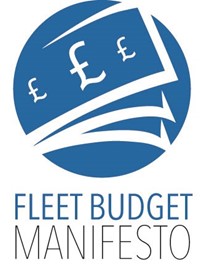Key fleet decision-makers have expressed their frustrations in dealing with many of the legislative challenges that Fleet News is working to address in its newly launched Fleet Budget manifesto.
The manifesto calls on the Chancellor to address key fleet concerns in November’s budget.
Fleet News will join with the British Vehicle Rental and Leasing Association and the Association of Car Fleet Operators to make a joint representation to the Treasury ahead of the Budget.
Fleet200 members discussed the manifesto, with many challenges to fleets it seeks to address, causing significant concern.
Key points raised:
- Fleets first clarified that the correlated NEDC figure given to the car from this September will remain with the car for duration of its time for BIK purposes; they will not switch to full WLTP when that it used from September 2020. This might result in some extensions of contracts if a like-for-like replacement could result in a big increase in BIK – unless the Government takes the rise in CO2 emissions into consideration and lowers the BIK thresholds
- Some fleets had put orders on hold while the waited to see the impact of WLTP and future BIK levels. Some were also considering switching to cash with the resultant rise in grey fleet, but recognised that it replaces one problem with another. This decision would also have HMT revenues. “They need to understand the risk of their policies,” said one fleet.
- The impact of WLTP on CO2 emissions varied widely depending on manufacturer and model. But all fleets had seen a lot of models drop off their choice lists.
- Some councils are encouraging companies to sponsor charge points and receive 50% of the revenue from those points to boost infrastructure expansion.
- There is an imbalance of charging BIK on electric charging for company cars at work where there is no charge for personal drivers. There is a need for government to change the incentives.
- HMT can’t make decisions in isolation. They have to communicate their proposals better in order to understand the impact for the industry and the workplace.
- The Government needs to rebalance BIK and also bring forward the 2% BIK for ULEVs. “They can do this now – they changed policy for the diesel surcharge with little notice,” was one comment. Another said: “Drivers should not be adversely affected by what is simply a different way to measure CO2 from the same car.”
- Fleets were concerned that HMT was looking at rates for vans and 4x4s. “We have to audit our fleets to check on private use that we have to monitor and declare,” said one.
- Surprisingly, given its was ACFO lobbying that led to the change in policy, fleets found the quarterly updates to advisory fuel rates a challenge because it meant changing their internal systems. Instead, they preferred rates to be fixed for the tax year which would then be rebalanced at the end of the year.
- “Tax is too high. Fix this and you fix the migration away from company cars. This would boost the uptake of more environmentally friendly cars and boost HMT revenues.”
- Fuel duty needs to be reduced or – at the very least – continue to be frozen because the rises in fuel prices are having a major effect on wholelife calculations.
- Government needs to define its position on plug-in hybrids and how they account for the electric element for AFRs.
- With average operating cycles within the Fleet200 at 47-48 months, fleets believed they should have a five-year sight of future BIKs so they and their drivers know their costs for their entire time with the car.
- There was a general call for the Government to slow down the rate of change. “The last two-three years has been constant – VED, sal/sac, BIK, WLTP – the rate of change is huge and we’ve had to try to keep up.”
- Fleets had concerns about consistency of clean air zones across the country and charging structures, including ZEZ versus ULEZ versus Euro6 zones, plus local authority parking charges and road restrictions in some areas in London. “It is impossible to keep on top of when you have a national fleet and a national employee base.”
- “Demonisation of diesel has to stop. It’s the right option for many drivers and job roles; for other roles petrol or electric is the right option. Allow us to choose the right fuel for the right function.”
- Should government start to incorporate NOx into the taxation picture to equal the balance with CO2? Fleets though it was worth looking at.

> SUPPORT OUR CALLS FOR THE CHANCELLOR TO ADDRESS FLEET ISSUES: Give your name to the support for the Fleet News Fleet Budget Manifesto

















Login to comment
Comments
No comments have been made yet.